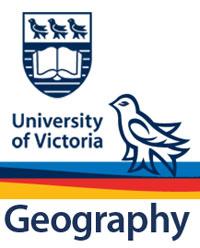Cultural geography [is] the field of study which concentrates upon the ways in which space, place and the environment participate in an unfolding dialogue of meaning. Includes thinking about 1) how geographical phenomena are shaped, worked and apportioned according to ideology; 2) how they are used when people form and express their relationships and ideas, including their sense of who they are. 3) It also includes ways in which place, space and environment are perceived and represented (Shurmer-Smith 2002: 3)
“Cultural geography ... generally refers to a study of the cultural forms that are evident in the landscape, and the meanings and practices that produce them… These landscapes are made meaningful in countless ways, often reflecting dominant interests in society, but are also frequently challenged by those who feel excluded..... [C]ultural geographers... try to analyze what is absent as well as what is present in cultural productions... the multiple underlying structures that condition the form and expression of place… (Mitchell 2010)
3 themes to guide cultural geography field investigation:
- The (re)production of space – identifying the constellation of local and global “ingredients” that produce a place, space, city, building, landscape etc. including: physical environment, available technologies, financial and other resources, conscious planning, dominant discourses (or ideologies, stories, beliefs), resistances, human agency and historical contingencies.
- The use of space / identities – identifying the unwritten and written rules guiding behaviour in space; identifying places and identities as performances
- The (contested) imagination and representation of space / place: identifying the multiple sometimes conflicting ways places are imagined, perceived and thus understood; identifying power relations in which perspectives come to hold more weight (and thus guide the production and reproduction of spaces) ; how places are represented by different groups, through the media, through naming etc.

